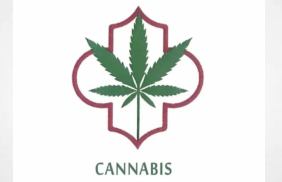WRITTEN BY:
More and more states across the South are adopting medical marijuana regimes. With this growth comes growing pains. One such pain for marijuana businesses is the tension between following state laws on a product that is still illegal at the federal level. This has impactful results for the taxation of medical marijuana businesses.
A business in the trade or business of trafficking a controlled substance – and marijuana is a Schedule I substance under the federal Controlled Substances Act – is disallowed all deductions usually allowed for that business under 26 U.S.C. § 280E. Normally, businesses can take a deduction for the costs incurred in carrying out a trade or business under
§ 26 U.S.C. 162(a). These businesses may also not deduct for state and local taxes paid or for charitable contributions.
These businesses are allowed to offset gross income by the cost of goods sold (COGS). Because COGS is a part of computing gross income per Tres. Reg. § 1.61-3(a), COGS is not a deduction and a business selling marijuana can still offset income through COGS.
The COGS equation can be boiled down as the following:
- cost of inventory on hand at the beginning of the year + (plus)
- purchase cost of inventory throughout the year + (plus)
- direct and indirect costs of producing inventory – (minus)
- cost of inventory in stock at the end of the year
This equation seems simple enough, but it has been the subject of several cases dealing with the taxation of marijuana. The usual sequence of events is that a marijuana business receives an IRS determination that they have a deficiency attributable to income adjustments because the business is not allowed deductions under Section 280E. The IRS then makes an initial determination of what COGS are allowable to the business. Often, when the business tries to argue this COGS amount, the taxpayer is deemed to have a lack of adequate documentation.
In addition to COGS, if a taxpayer can prove, through documentation, that the taxpayer is involved in multiple trades or businesses and not just a business focused on the sale of marijuana, then the separate business can take normal business deductions.
Until Congress changes either the regulation pertaining to Section 280E dealing with marijuana or changes the schedule of marijuana, there is little room for maneuvering. Therefore, the below information is offered as a primer on how to best be prepared for a federal tax bill for a marijuana business, and includes ideas on how to structure a marijuana business in light of current federal tax policy.
-
Keep careful records.
In calculating COGS, it is critical to document the beginning and ending inventory amounts. If these amounts are not documented, the IRS will make its best guess at these amounts, and the taxpayer will be facing an uphill battle in disproving these amounts. This can be a particular challenge if the marijuana business conducts a substantial percentage (if not all) of its business in cash. Appropriately documenting these amounts could result in a tax savings, as well as the avoidance of any accuracy-related penalties that the IRS may impose. (Patients Mut. Assistance Collective Corp. v. Comm’r of Internal Revenue; taxpayer able to overcome accuracy-related penalties assessed against it by maintaining good books and records).
Documentation of expenses can be difficult since banks do not want to be seen aiding and abetting federally illegal activity, but it is not impossible to keep good records. Doing so, however, requires planning to make sure that records are being preserved and kept contemporaneously.
-
Understand different lines of a trade or business.
Many businesses that deal in marijuana also sell items and transact in services that are not marijuana. The determination on if these other activities is a separate trade or business is fact intensive. As stated in Alterman v. Comm’r of Internal Revenue:
“Whether selling non-marijuana merchandise was a separate business from selling marijuana merchandise is an issue of fact that depends on, among other things, the degree of economic interrelationship between the two activities.”
In other words, if an item being sold helps encourage or compliments the sales of marijuana, it will likely not count as a separate trade of business. Additionally, if it can’t be shown that a substantial amount of revenue is derived from other goods or services, then only COGS will be allowed for the entire business.
This means that businesses offering free services to patients, such as yoga classes, will not be able to take the typical business deduction for non-280E type businesses. If, on the other hand, the yoga classes are offered at a direct cost or included in a membership fee that encompasses a number of non-marijuana focused services, then a typical business deduction could be allowable for the costs associated with providing those goods, in addition to the COGS allowed.
The separate business should be able to stand on its own. In Alterman, approximately 95% of the gross receipts of the business was derived from marijuana products. Of the non-marijuana products sold, the majority of these were marijuana paraphernalia and were not seen as a separate trade or business. Even though the majority of non-marijuana products sold were marijuana paraphernalia, the court did not preclude that the non-marijuana products could have received a typical business deduction. The reason the typical business deduction was not fully discussed is that the business in Alterman did not have adequate business records to substantiate the claim that the business was separate.
The definition of a separate trade or business is technical and relies on documentation. The court in Olive v. Comm’r defined a trade or business as something “entered into with a dominant hope and intent of realizing a profit.” In Olive, the business offered amenities “much like a community center” and offered services such as yoga classes, movies, and therapy without a cost. These amenities could not be substantiated to be a separate trade or business through any business records.
Another thing to be mindful of is how the business is advertised. If the goal is to show how there are multiple trades or businesses occurring, then marketing materials for these separate businesses should show this. If, for example, yoga classes are offered, marketing materials that do not make mention of the marijuana product would bolster the taxpayer’s case.
Additionally, the construction of a brick and mortar store or website can help substantiate the separate trade or businesses. If the brick and mortar store is constructed in a way that visibly divides the marijuana-focused products or services and non-marijuana-focused products or services, it could help document that the intention of the business is to be a separate trade or business. A website could also be constructed in a way that shows this as well.
Lastly, if the separate trade or business of a medical marijuana dispensary is focused on holistic health in any way, it is important to have either a board member or employees with that background to help validate this claim to the IRS.
-
Know your local laws.
Various states have legalized marijuana in various ways. State statutes can require certain fees to be paid in order to do business. These payments can be included in the COGS equation, but they must be substantiated.
Additionally, some states, such as California, may require that the business have a community-benefit aspect. This does not mean that the business cannot utilize non-marijuana-focused activities as a deduction for a separate trade or business, it just means that the division should be explicit.
MORE on the Future of Medical Marijuana
The future of medical marijuana is currently at a standstill until Congress changes either the regulation pertaining to Section 280E dealing with medical marijuana or new laws legalizing marijuana federally are passed. There has been some movement on this front.
On Nov. 20, 2019, the Marijuana Opportunity, Reinvestment, and Expungement Act (MORE Act) became the first marijuana legislation to pass the House Judiciary Committee. As drafted, the MORE Act would decriminalize marijuana at the federal level.
Decriminalizing marijuana would allow for medical marijuana businesses to not be burdened by Section 280E.
Until such legislation becomes law, the above tips offer a good starting point on how to manage the taxation of marijuana. It is important to consult with legal and tax professionals when setting up a marijuana business to get a grasp on the records important to be cognizant of in your state.



















